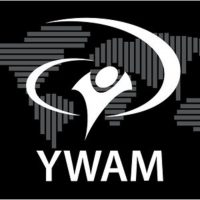 “The heretical Moral Government teaching is largely in YWAM’s past. Yet Moral Government teaching morphed into another heterodox doctrine promoted within YWAM today, known as “open theism.” What is open theism? It entails the belief that God does not exhaustively know all of the future. Specifically, he doesn’t know what decisions human beings will choose to make acting out of their free wills. In other words, God’s knowledge is limited by humankind’s free moral choice. He cannot 100 percent predict what any free moral agent will do ahead of time.”
“The heretical Moral Government teaching is largely in YWAM’s past. Yet Moral Government teaching morphed into another heterodox doctrine promoted within YWAM today, known as “open theism.” What is open theism? It entails the belief that God does not exhaustively know all of the future. Specifically, he doesn’t know what decisions human beings will choose to make acting out of their free wills. In other words, God’s knowledge is limited by humankind’s free moral choice. He cannot 100 percent predict what any free moral agent will do ahead of time.”
(Holly Pivec – Spirit of Error) This post is the first in a series on the influential Christian missions organization Youth With a Mission (YWAM), with a focus on its relationship to the controversial New Apostolic Reformation movement. YWAM was founded in 1960 by Loren Cunningham as a way to deploy young people as missionaries throughout the world….
It’s now one of the largest Christian missionary organizations, having more than 18,000 staff working in over 180 nations. Many churches financially support YWAM full-time missionaries and young adults who sign up to go on short-term mission trips with YWAM or to attend one of YWAM’s Discipleship Training Schools or other schools. Yet many of these churches would likely be surprised and concerned to learn about some of the unbiblical and spiritually harmful teachings promoted by this organization.
In this first post I’ll outline one significant part of YWAM’s theologically controversial history to set the stage for future posts about YWAM as it currently stands.
A Sketchy Theological Heritage
One misperception of YWAM is that its teachings are generally theologically sound – or at least they started off that way. But in this post, I show that, from its earliest days, YWAM has been plagued by aberrant, and sometimes outright heretical, theology.
To be fair, I should note that YWAM bases are semi-autonomous. So, there is some variability in terms of what teachings might be found at those bases. That being said, the aberrant teachings I address in this series have not been limited to isolated bases under local leadership. Rather, they’ve been widespread and have been promoted at the level of the larger organization.
An Early Controversy: Moral Government Theology
In the 1970s and 1980s (and even some into the 1990s), a heretical belief system known as “Moral Government” was pervasive in YWAM. It was taught to tens of thousands of students at YWAM bases throughout the world. YWAM’s promotion of the Moral Government teaching was documented by respected theologians, including Alan W. Gomes, of Talbot School of Theology, in a book published in 1981, titled Lead Us Not into Deception: A Biblical Examination of Moral Government Theology. Gomes, in his book, introduced his critique of Moral Government theology this way:
The Moral Government teaching is a distinct system of theology concerned with the nature and attributes of God, the nature of man, and the process of salvation. The Moral Government teaching is a heretical form of doctrine. It is unbiblical in key areas of the faith, such as the atonement and the nature of God. Moral Government errs in more than peripheral areas of doctrine: The Moral Government teaching is basically flawed concerning the issues on which salvation hinges…. At issue here is whether or not Jesus literally paid for our sins on Calvary, if the righteousness of Christ is imputed to us when we believe, and if God possesses the attributes of immutability and omniscience. Clearly, these are not issues about which Christians can “agree to disagree.” These are issues which strike at the heart of the Christian faith.[1]
Research